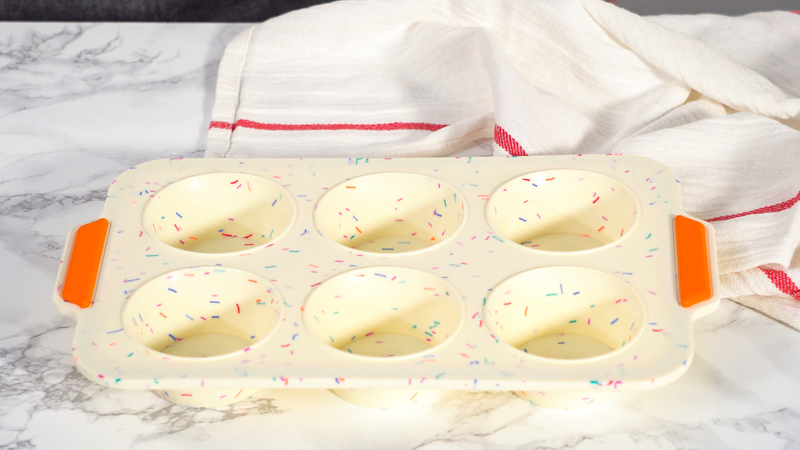 When it comes to baking, the choice of bakeware can significantly impact the outcome of your culinary creations.
When it comes to baking, the choice of bakeware can significantly impact the outcome of your culinary creations.
Two commonly used materials for baking pans are silicone and aluminum.
Each has its own set of advantages and disadvantages, and safety is a primary concern for many home bakers.
In this article, we’ll delve into the question: Are silicone baking pans safer than aluminum?
We’ll explore the characteristics of both materials, their potential health implications, and considerations for making the right choice for your kitchen.
Understanding Silicone Baking Pans
- The Silicone Advantage
Silicone baking pans have gained popularity in recent years due to their numerous advantages.
Here’s why many bakers are making the switch to silicone:
- Nonstick Properties
Silicone is naturally nonstick, which means you can often skip greasing or using parchment paper, reducing the use of cooking oils and fats.
- Heat Resistance
Silicone can withstand high temperatures, typically up to 500°F (260°C) or more.
This heat resistance makes it suitable for a wide range of baking and cooking applications.
- Flexibility
Silicone pans are flexible and can be easily bent or twisted, allowing for easy removal of baked goods without damaging them.
- Durability
Silicone pans are known for their durability and can last for many years with proper care.
They are less likely to dent or scratch compared to aluminum.
Is Silicone Safe?
 Silicone is considered safe for baking and cooking purposes.
Silicone is considered safe for baking and cooking purposes.
It is made from synthetic polymers, which are inert and do not react with food.
Unlike some plastics, silicone does not leach harmful chemicals into your food when exposed to heat.
However, it’s essential to use food-grade silicone products to ensure safety,
The Walfos Silicone Muffin Pans are made of 100% food-grade silicone, BPA-free, and designed for safe food preparation.
They are nonstick, easy to clean, and come with two 12-cup muffin tins.
These versatile pans can be used for various recipes beyond muffins, and they have excellent heat resistance, ranging from -104°F to 450°F (-40°C to 232°C).
The product comes with a satisfaction guarantee, ensuring customer happiness and offering replacements or refunds if any issues arise.
Aluminum Baking Pans – Pros and Cons
The Aluminum Advantage
Aluminum baking pans have been a staple in kitchens for decades.
Here are the advantages of using aluminum pans:
- Excellent Heat Conduction
Aluminum is an excellent conductor of heat, which means your baked goods are likely to cook evenly and develop a golden-brown crust.
- Affordable and Widely Available
Aluminum baking pans are budget-friendly and readily available in various shapes and sizes, making them a practical choice for home bakers.
- Durability
Aluminum pans are generally durable and resistant to rust, provided they are properly cared for.
- The Potential Health Concerns
While aluminum pans have been used for generations, there have been concerns about the potential health risks associated with aluminum exposure.
These concerns include:
- Aluminum Leaching
There is some evidence to suggest that aluminum can leach into food, especially when cooking acidic or alkaline dishes.
High levels of aluminum in the body have been linked to health issues, including Alzheimer’s disease.
- Nonstick Coatings
Some aluminum pans come with nonstick coatings, which can wear off over time, potentially leading to the ingestion of the coating’s chemicals.
Making the Safer Choice
 The safety of your bakeware largely depends on how you use and maintain it.
The safety of your bakeware largely depends on how you use and maintain it.
Both silicone and aluminum baking pans can be safe options when used correctly.
Here are some tips to help you make the safer choice:
- Choose High-Quality Materials
Opt for food-grade silicone and aluminum bakeware to ensure they meet safety standards.
- Proper Care and Maintenance
Follow manufacturer’s instructions for cleaning and maintaining your bakeware.
Avoid using sharp utensils on silicone and be cautious with nonstick coatings on aluminum.
- Consider the Recipe
Choose your bakeware based on the specific recipe you’re preparing.
Some recipes may work better in silicone, while others may benefit from aluminum’s heat conductivity.
- Be Mindful of Temperature
Respect the temperature limits of your bakeware.
Silicone can handle high heat, but exceeding these limits may cause damage.
Conversely, avoid using aluminum at extremely high temperatures to prevent potential aluminum leaching.
Bottom Line – Are Silicone Baking Pans Safer Than Aluminum?
So, are silicone baking pans safer than aluminum?
The answer depends on how you use them and your specific needs.
Both silicone and aluminum have their advantages and potential concerns.
By choosing high-quality materials, following proper care and maintenance, and being mindful of your recipe and temperature requirements, you can make baking a safe and enjoyable experience, regardless of the material you choose.
Ultimately, your preference may come down to your baking style and personal comfort with each material.



